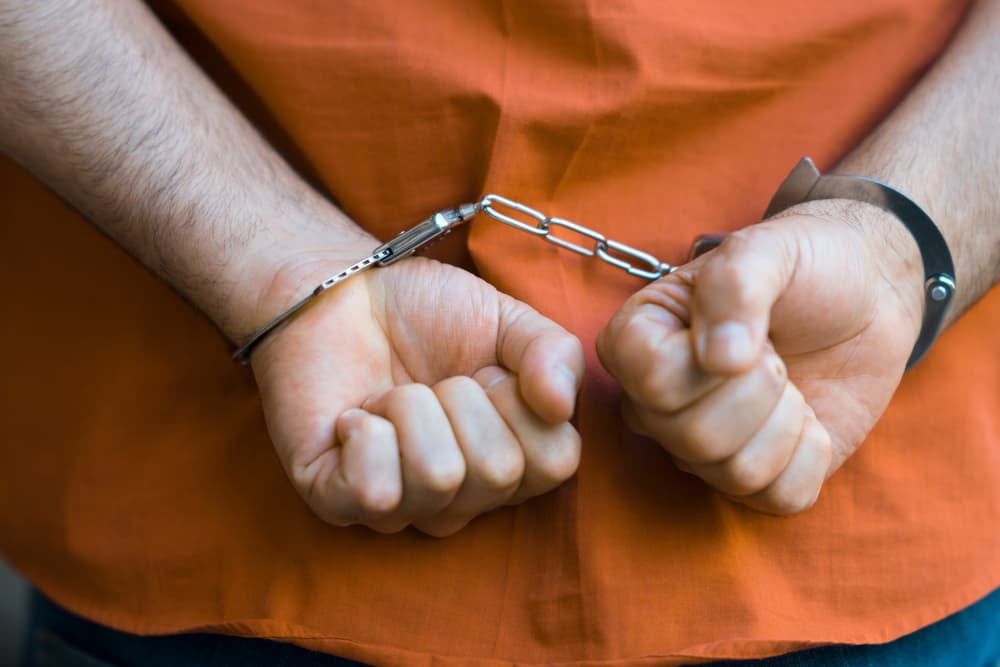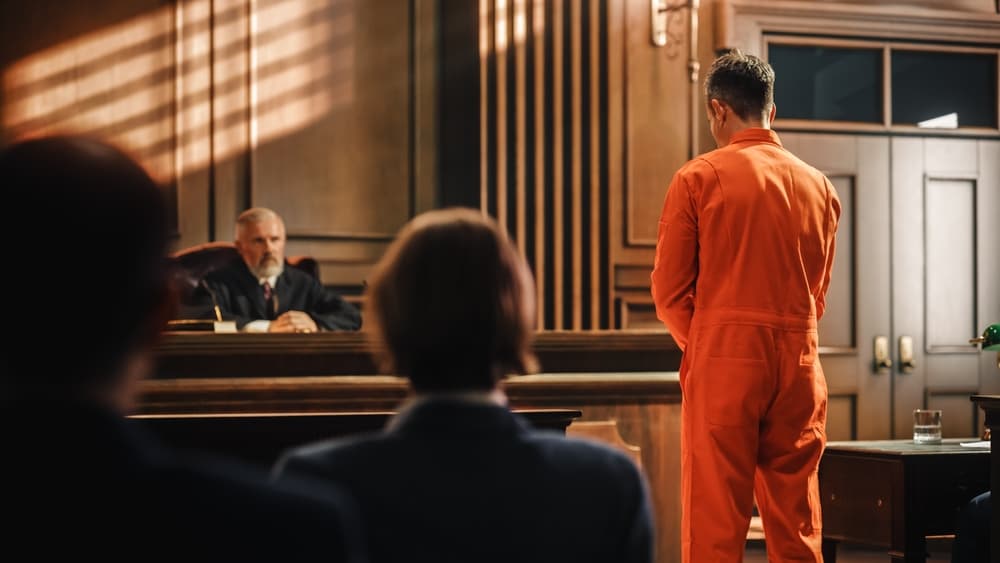In California, plea deals involve an agreement between the accused individual (the defendant) and the prosecution, where the defendant agrees to plead guilty to a lesser charge or receive a reduced sentence in exchange for avoiding trial.
A skilled California criminal defense attorney plays a vital role in this process by reviewing the evidence, identifying weaknesses in the prosecution’s case, and negotiating on behalf of the defendant. An attorney can also work to secure a favorable plea deal by leveraging their understanding of the law, relationships with prosecutors, and knowledge of the local legal system. If facing multiple charges, a defense attorney can negotiate to reduce the charges or sentences, ensuring the best possible outcome for the accused individual.
Common Penalties of a Criminal Conviction in California
In California, the legal penalties for a criminal conviction vary depending on the severity of the crime committed. Generally, the consequences include fines, probation, imprisonment, or a combination of these. The specific penalty often depends on whether the offense is classified as a felony, misdemeanor, or infraction, as well as the circumstances surrounding the crime.
For many crimes, fines are a common penalty. These fines are typically imposed to punish the offender and discourage future illegal activity. The amount can vary greatly, with minor infractions resulting in lower fines and more serious felonies leading to larger financial penalties. In some cases, the court may order restitution, which requires the offender to compensate the victim for damages or losses resulting from the crime.
Probation is another frequent consequence of a conviction, particularly for nonviolent crimes. Probation allows the individual to avoid jail or prison time if they comply with certain conditions that the court sets. These conditions may include regular check-ins with a probation officer, attending counseling or rehabilitation programs, community service, and staying out of trouble with the law. Violating probation can lead to more severe penalties, such as imprisonment.
For more serious crimes, imprisonment may be the most significant penalty. Felony convictions, which are more severe offenses, typically result in a prison sentence. The length of the sentence can range from a few months to life in prison, depending on the crime. California has a system of indeterminate sentencing, which means a person convicted of a felony may be eligible for parole after serving a certain portion of their sentence. However, mandatory minimum sentences exist for certain crimes, such as violent felonies, meaning the offender must serve a certain amount of time before being eligible for parole.
Misdemeanors, which are less serious offenses, generally lead to shorter jail sentences – usually less than one year. However, in some cases, individuals may be allowed to serve their time in a county jail instead of a state prison. For individuals convicted of more minor crimes, such as infractions, the penalty is often a fine or a brief period of incarceration.
In all cases, the exact penalties will depend upon the facts of the case, the defendant’s criminal history, and the judge’s discretion.
Collateral Consequences of a California Criminal Conviction

In California, a criminal conviction can lead to a wide range of collateral consequences that affect various aspects of a person’s life, even after they have completed their sentence. These consequences, which are not part of the official penalty that the court hands down, can have long-lasting effects on an individual’s ability to find stable employment, secure housing, or even maintain personal relationships.
- One of the most significant collateral consequences is the difficulty in finding and keeping a job. Many employers perform background checks before hiring, and a criminal record can make it much harder for a person to get hired – especially for jobs that require trust, security clearance, or a clean record. Even if the conviction is not related to the specific job field, many employers are hesitant to take on someone with a criminal history, fearing the potential for liability or negative publicity.
- Securing housing can also become challenging for someone with a criminal conviction. Landlords often conduct background checks as part of the rental application process, and many will not rent to individuals with certain types of criminal records, particularly felonies or violent crimes. This can force individuals to seek out less desirable or more expensive housing options, which may lead to instability in their living situation.
- In addition to employment and housing, a criminal conviction can affect one’s ability to obtain professional licenses or certifications. Certain professions, such as law, teaching, or medicine, often have strict requirements regarding criminal background checks. A conviction, especially for a serious crime, may prevent someone from obtaining or renewing a professional license, limiting their career opportunities.
- Beyond these practical challenges, a criminal conviction can also take a toll on personal relationships. Family members and friends may distance themselves from the individual, particularly if the crime is serious or if the person is serving a lengthy prison sentence. The stigma associated with having a criminal record can lead to feelings of isolation, shame, and a loss of social support.
- Finally, for non-citizens, a criminal conviction can result in deportation or difficulty in obtaining legal residency status. Immigration authorities often consider criminal records when making decisions about deportation or visa applications, which can have life-altering consequences for immigrants.
What is a Plea Deal and How Does It Work in California?
A plea deal, also known as a plea bargain, is an agreement between the prosecution and the defendant in a criminal case. In California, it allows the defendant to plead guilty to a lesser charge or receive a reduced sentence in exchange for avoiding a trial. Plea deals are common in the criminal justice system because they save time and resources for both the court and the parties involved while also providing the defendant with some certainty about the outcome of their case.
The process typically begins after the defendant has been charged with a crime and has entered a plea of “not guilty.” The prosecutor and defense attorney then negotiate the terms of a potential plea agreement. The defendant may agree to plead guilty to a lesser offense, which carries a lighter penalty than the original charge, or to a reduced sentence for the same charge. In return, the prosecution agrees not to pursue more severe charges or to recommend a lighter sentence to the judge. The goal for both sides is to resolve the case without the need for a lengthy trial, which can be expensive and time-consuming.
There are several types of plea deals in California. One common type is the “charge bargain,” where the defendant agrees to plead guilty to a lesser charge, which carries a less severe penalty. For example, someone charged with a felony may agree to plead guilty to a misdemeanor instead. Another type is the “sentence bargain,” where the defendant pleads guilty to the original charge, but the prosecutor agrees to recommend a reduced sentence, such as probation, instead of jail time. In some cases, the plea may involve both a reduction in charges and a lighter sentence.
Once a plea deal is reached, the defendant must appear in court to formally enter their plea. The judge will review the terms of the deal to ensure that it is fair and that the defendant is entering into the agreement voluntarily. If the judge approves the plea, the defendant will be sentenced according to the terms of the agreement. However, if the judge rejects the plea deal, the case may proceed to trial.
While plea deals offer some benefits, they can also raise concerns. Some defendants may feel pressured to accept a plea deal, even if they are innocent because they want to avoid the risk of a harsher sentence if they are convicted at trial. Nonetheless, plea deals remain a central part of the California criminal justice system, helping to resolve many cases more efficiently.
How Can a Lawyer Obtain a Favorable Plea Deal for You?

A knowledgeable California criminal defense attorney can play a key role in obtaining a favorable plea deal for a defendant. Plea bargains are a common way to resolve criminal cases, and an experienced defense lawyer knows how to navigate this process to achieve the best possible outcome for the accused. There are several legal strategies that a skilled defense attorney may use to secure a favorable deal.
First, a defense attorney will carefully review the evidence against the accused. If there are weaknesses in the prosecution’s case, such as unreliable witnesses, conflicting evidence, or problems with how the evidence was collected, the attorney can use these to negotiate a better plea deal. By highlighting the possibility that the prosecution may lose at trial or face challenges in proving their case, the attorney can push for a reduced charge or a lighter sentence.
Another strategy involves examining the legal factors that may influence the case. For example, the defense attorney can look into whether the defendant’s rights were violated during the investigation or arrest. If the police conducted an illegal search or failed to inform the defendant of their rights, the defense attorney may argue that key evidence should be excluded from trial. The threat of having critical evidence suppressed can often encourage prosecutors to offer a more favorable plea deal rather than risk a trial with weakened evidence.
A knowledgeable attorney also knows how to present their client in the best light during plea negotiations. They can emphasize positive factors about the defendant, such as their lack of a criminal record, good character, or willingness to make restitution to the victim. If the defendant is willing to undergo counseling or participate in rehabilitation programs, the attorney can suggest these as ways to show that the defendant is taking responsibility for their actions and is committed to making changes.
Additionally, an experienced criminal defense attorney will have a good understanding of the local legal system and relationships with prosecutors. They may know the tendencies of specific prosecutors, how they typically handle certain charges, and what kinds of plea deals they are willing to offer. This knowledge allows the attorney to approach negotiations strategically and advocate for the best possible outcome.
Ultimately, a skilled criminal defense lawyer can use their knowledge of the law, their experience with plea negotiations, and their understanding of the case to secure a favorable plea deal, minimizing penalties and providing the defendant with the best chance to move forward with their life.
Deciding Between a Plea Deal and a Criminal Court Trial in California

Deciding between accepting a plea deal and going to trial is a critical decision in the California criminal justice system. Both options have advantages and risks, and the choice depends on several factors, including the strength of the evidence, the potential penalties, and the defendant’s personal circumstances.
One of the main benefits of accepting a plea deal is the certainty it offers. By agreeing to a plea bargain, a defendant can avoid the uncertainty of a trial, where the outcome is unpredictable. Trials can be long, stressful, and emotionally taxing, and there is always the risk of being found guilty and facing harsher penalties. In a plea deal, the defendant can plead guilty to a lesser charge or secure a reduced sentence in exchange for avoiding trial. This can be especially appealing for those who feel that the evidence against them is strong or if they want to avoid the risks of a trial.
Plea deals also offer quicker resolutions. Trials can take months or even years to complete – particularly in complicated cases. In contrast, a plea deal allows the defendant to resolve the case much sooner, often avoiding prolonged legal battles and the uncertainty that comes with them. This can be important for someone who wants to move on with their life, especially if they face significant legal costs or have personal or family responsibilities.
On the other hand, choosing to go to trial may be the best option for someone who believes they are innocent or who thinks the evidence against them is weak. A trial gives the defendant the chance to challenge the prosecution’s case, present their own evidence, and have a jury or judge decide their fate. If the defendant is acquitted, they walk away with no conviction or sentence. However, the risks are sometimes high. If convicted, the penalties can be more severe than what may have been offered in a plea deal.
Ultimately, the decision comes down to the specific facts of the case, the advice of the defendant’s attorney, and the defendant’s personal goals. A skilled attorney can evaluate the strength of the case, the likelihood of success at trial, and the potential outcomes of both options. The choice between a plea deal and a trial involves weighing the risks and benefits to make the best decision in a given situation.
Speak to an Experienced Criminal Defense Lawyer Today
If you are currently facing a criminal charge in California, Chudnovsky Law's knowledgeable criminal defense attorneys can aggressively advocate for you and protect your interests. Your lawyer can also pursue a favorable plea deal in your case or a complete dismissal of your pending charge(s), depending on the circumstances.